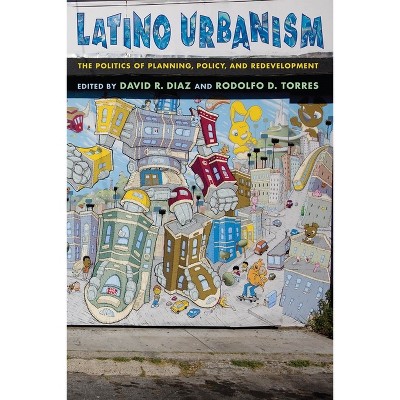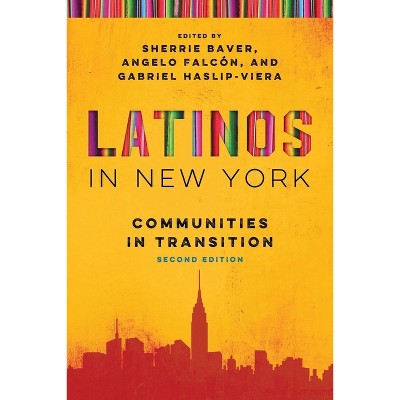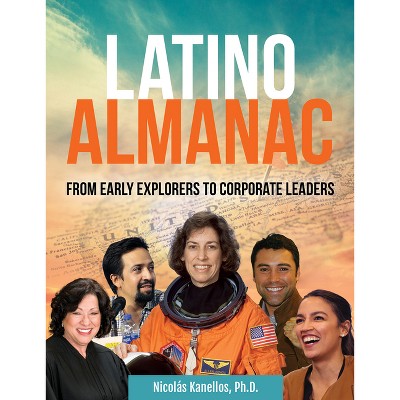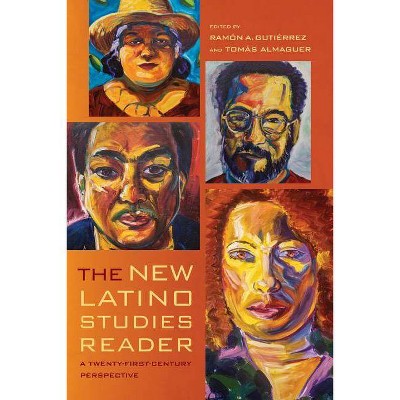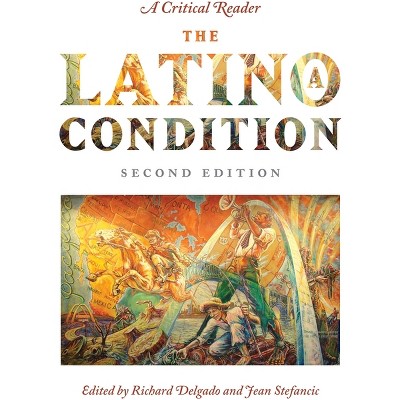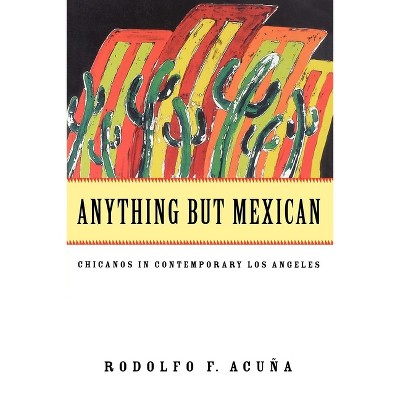U.S. Latino Issues - 2nd Edition by Rodolfo Acuña (Hardcover)

About this item
Highlights
- A revision of the popular previous edition published more than a decade earlier, this work examines today's U.S. Latino population-now arguably the most important "minority group" in the country, with numbers well over 50 million strong in an increasingly diverse and integrated America.
- About the Author: Rodolfo F. Acuña, PhD, professor emeritus, received his doctorate from the University of Southern California in Latin American studies.
- 360 Pages
- Social Science, Ethnic Studies
Description
About the Book
A revision of the popular previous edition published more than a decade earlier, this work examines today's U.S. Latino population--now arguably the most important 'minority group' in the country, with numbers well over 50 million strong in an increasingly diverse and integrated America.
Latinos are the largest minority in the United States, and as such, Latino Americans have a tremendous influence on the culture, workforce, economy, and politics of this country. This second edition of U.S. Latino Issues provides updated content, stats, and data for each topic, and it frames critical questions and multiple viewpoints on Latinos in the United States that will be useful to student researchers. The responses to the critical questions come from Latino experts and scholars and other well-known subject experts, providing readers with insights from various informed points of view--all in a single volume.
The book covers hundreds of topics regarding Latino Americans, such as gender, sexuality, indigenous culture, race and cultural identity, health and wellness, education, and interracial dating and marriage, and it offers in-depth comparisons of the Latino groups and shows how events in their native countries affect them. Readers will have access to concise and up-to-date information on controversial topics such as affirmative action, immigration reform, open borders policy versus border enforcement, changing relations between the United States and Cuba, and Puerto Rico's contested status as a commonwealth versus a state.
- Uses the latest census data to document the demographic growth of this group and its importance in immigration, the U.S. workforce, and voting in America
- Examines the misconception that the growth of the U.S. Latino population is solely based on immigration when in reality more babies are birthed by native mothers than by newly arrived immigrants
- Provides an insightful discussion of minority status in the United States--Latino or otherwise--that challenges readers to reconsider their attitudes about immigration, the value of immigrants in American society, and ethnocentrism
Book Synopsis
A revision of the popular previous edition published more than a decade earlier, this work examines today's U.S. Latino population-now arguably the most important "minority group" in the country, with numbers well over 50 million strong in an increasingly diverse and integrated America.
Latinos are the largest minority in the United States, and as such, Latino Americans have a tremendous influence on the culture, workforce, economy, and politics of this country. This second edition of U.S. Latino Issues provides updated content, stats, and data for each topic, and it frames critical questions and multiple viewpoints on Latinos in the United States that will be useful to student researchers. The responses to the critical questions come from Latino experts and scholars and other well-known subject experts, providing readers with insights from various informed points of view-all in a single volume. The book covers hundreds of topics regarding Latino Americans, such as gender, sexuality, indigenous culture, race and cultural identity, health and wellness, education, and interracial dating and marriage, and it offers in-depth comparisons of the Latino groups and shows how events in their native countries affect them. Readers will have access to concise and up-to-date information on controversial topics such as affirmative action, immigration reform, open borders policy versus border enforcement, changing relations between the United States and Cuba, and Puerto Rico's contested status as a commonwealth versus a state.Review Quotes
"Although the intended audience is advanced high school and beginning college students, the content and quality of the essays are such that it will be an important resource for general readers and teachers, and suitable for all public libraries and undergraduate collections. Summing Up: Highly recommended. High school through undergraduate students; general readers; professionals/practitioners." --Choice
"A very topical title, U.S. Latino Issues is well suited for high school and undergraduate students. Educators seeking ideas for student research and debate on immigration will also benefit from this recommended title." --ARBAAbout the Author
Rodolfo F. Acuña, PhD, professor emeritus, received his doctorate from the University of Southern California in Latin American studies.Shipping details
Return details
Trending Non-Fiction






